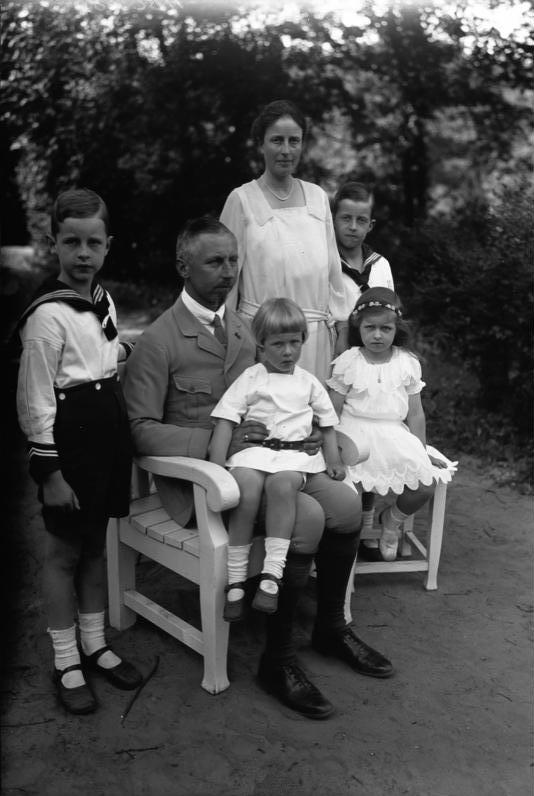
Prince Oskar Wilhelm Karl Hans Kuno of Prussia was born on 15 July in 1915 at the Marmorpalais (Marble Palace) near Potsdam in the Kingdom of Prussia. He was the son of Prince Oscar Karl Gustav Adolf of Prussia and his wife, Princess Ina-Marie Gräfin of Bassewitz. He was the grandchild of Emperor Wilhelm II of Germany.
When Prince Oskar was three-years-old, his family was forced to abdicate the German throne. While his grandfather, Emperor Wilhelm, moved to the Netherlands, the Prince and his family remained in Brandenburg, where Oskar and his younger brothers attended the local school.

Oskar’s father, Prince Oscar, was involved in the Nazi-German Army; he was reactivated as Colonel of the Wehrmacht and commanded the 230th Infantry Regiment and was later promoted to Major General. Following the decree of his father, former Emperor Wilhelm, Prince Oscar left the army in 1943 to retain his royal titles.
Prince Oskar followed in his father footsteps and joined the Nazi Army in 1935. On 1 September 1939, Germany invaded Poland. To justify the action, Nazi propagandists falsely claimed that Poland had been planning, with its allies Great Britain and France, to encircle and dismember Germany and that Poles were persecuting ethnic Germans. The German offensive was effective.
The Poles had built a line of defence behind the Widawka River, and the Polish soldiers entrenched themselves there and used the river as a moat. However, the German attack went straight on the river and crossed it relatively quickly.

The Prince led the German 51 Infantry Regiment across the river. The Polish forces had entrenched themselves on a small hill with a good machine gun position. The Prince led the attack and was hit by a series of shots from the machine gun. It was during this round of fighting, on 5 September 1939, that Prince Oskar died at 24-years-old. The Nazis noticed this but took no immediate action. His remains were later moved to Potsdam and buried at the Stadtkreis gravesite.
With the death of Prince Oskar, the German people harboured a newfound sentiment for the royal family amidst the totalitarian regime that was Nazi Germany. As a consequence, the majority of royals serving in the German Armed Forces appear to have had their commissions cancelled. Prince Oskar was the first cousin of Prince Wilhelm of Prussia who was killed in action during the invasion of France in 1940.

